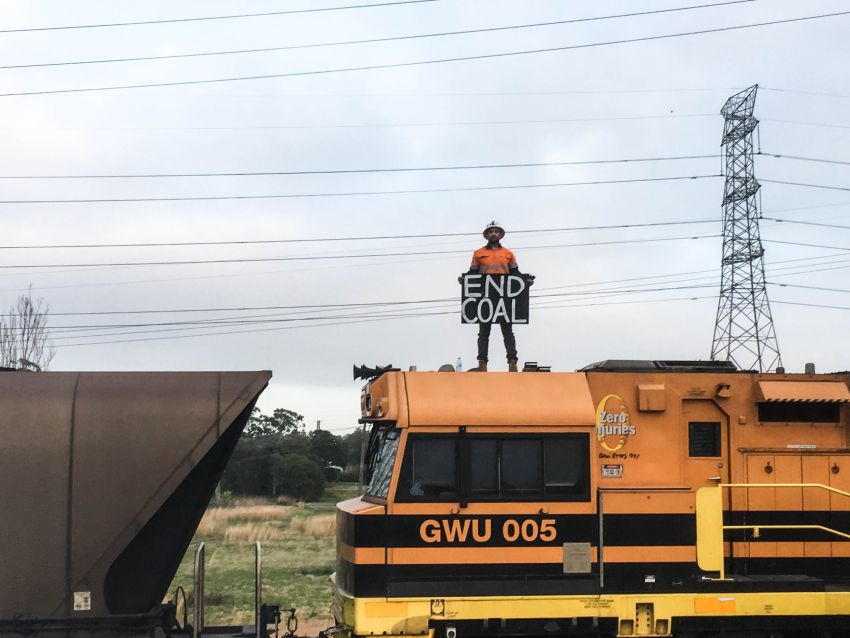
On September 13, Micah Weekes, once a coal miner and now an anti-coal activist stopped a coal train heading into the world’s largest coal port in Newcastle.
A former scaffolder from the Central Coast, Weekes worked in the coal industry for nearly 10 years. He said he was taking action because of the coal industry’s toxic impact on people’s health.
“You don’t have to work in the industry to get sick from this. My kids are going to get sick. It’s already happening. People in my community have reoccurring respiratory illnesses, cancers and tumours.”
Weekes boarded a train at Sandgate Bridge at 6am and stopped trains heading towards the port. He was taken into custody, and released 4 hours later.
Weeks is demanding that the government transitions away from the coal industry because of toxicity to the health of workers and the communities.
Two coal-fired power stations — Earring and Vales Point — in Lake Macquarie are having a bad impact on the health of communities living in Lake Macquarie, Newcastle and the greater Hunter.
Weekes wants the state government to plan for a transition to a 100% renewable energy. This has to include re-training for those who currently working in the coal industry.
The 2010 NSW Department of Health’s Respiratory and Cardiovascular Diseases and Cancer among Residents in the Hunter New England Health Service report found that in the Upper and Lower Hunter open-cut coal mining and power generation have contributed to higher rates of asthma and respiratory disease as well as hospital admissions for these diseases. It also found higher rates of hospital admissions for cardiovascular disease as well as higher rates of death.
“I’m watching people get sick, and no-one is reporting on it”, Weekes said.
He is also angry that, given these findings, the Coalition government continues to endorse coal mining in the Hunter and that there has not been any meaningful plan for a just transition towards renewable energy.
It is clear that not only those who work in the industry, but those who live and work in surrounding areas, are being affected by this.
People who have worked in the coal industry are increasingly at risk, Weekes said, especially as basic health and safety requirements, such as respirators, are inadequate.
“We complained because we were getting dust around our nose and ears. We had the respirator independently tested for workplace health and safety, and it failed. Every time a person would turn their head, the seal would break and they breathe in coal dust. Nothing was done. This was the case throughout decades of working in the industry.”
Weeks said that he can see one power station out the front of his home, and there are two more nearby. “There are four power stations within 10 minutes of each other. This is where my kids are going to grow up. I keep seeing people get sick and no one is doing anything about it.”
[The action is part of Frontline Action on Coal and Newcastle Justice Uprising’s event, Act Up, aimed at disrupting the world’s largest coal port. Act Up is taking place in Newcastle from September 12-16.]